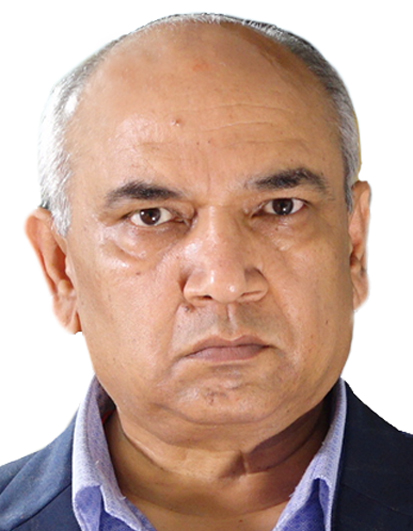Columns
Saving National Human Rights Commission
The decision to downgrade the NHRC’s status raises questions over our commitment to human rights.
Bijay Raj Gautam
The Sub-Committee on Accreditation (SCA) of the Global Alliance of National Human Rights Institutions (GANHRI) is set to execute its decision to downgrade the status of the National Human Rights Commission (NHRC) of Nepal, in August 2023. The nature of the NHRC’s inception and evolution differs from other existing National Human Rights Institutions. The government formulated the NHRC as a statutory body under the Human Rights Commission Act 1997, with the UN General Assembly Resolution 1992/54 as its reference. This commitment to the Paris Principles allowed the Commission to obtain its “A” status, even when it operated under the monarchy’s rule in Nepal. The Commission ascended to a constitutional body in the Interim Constitution of Nepal in 2007, and later in the 2015 Constitution.
As a member of the UN, Nepal is obligated under the Paris Principles to have an inclusive, independent and autonomous Human Rights Commission. The commission should inculcate pluralism, independence, and effectiveness in operation and functioning. However, in recent years, there have been disputes regarding the procedures and legality of the appointment of NHRC officials.
These concerns were exacerbated on December 15, 2020, when the Constitutional Council recommended officials for the NHRC, including the chairperson, for a parliamentary hearing. The Constitutional Council Act 2010 required unanimous consent with the presence of five out of six members of the council for any decision. However, the council recommended officials with only three members present. The cabinet then introduced an amendment ordinance of the Constitutional Council Act 2010, ratified by the President of Nepal on the same day.
The ordinance allowed the Constitutional Council to implement decisions based on the majority, removing unanimous consent. This allowed the council to appoint the members of the Human Rights Commission through majority voting, rendering the past quorum threshold moot.
The status downgrade
The government promptly dissolved Parliament after ratifying the ordinance. It appointed the recommended officials due to the legal provision of de-facto appointments of recommendations within 45 days of an incomplete parliamentary hearing or decision. After the National Human Rights Commission officials were appointed, concerned stakeholders filed a case against this decision in the Supreme Court of Nepal. Against this backdrop, GANHRI, on February 2021, received an appeal from civil society organisations to review the commission’s status. Following that, the Sub-Committee on Accreditation (SCA) decided to downgrade the status. The committee expressed its reservations regarding the NHRC’s appointment procedures and its adherence to the requirements of the Paris Principles. SCA conveyed its concerns regarding the credibility of the appointment process and the credibility and independence of NHRC to protect and promote human rights. It further provided recommendations to align NHRC’s actions with the Paris Principles. Nepal’s NHRC will retain “A” status until the SCA’s second session of 2023, allowing time for the government to provide evidence or outline actions to prevent the downgrade.
GANHRI evaluates the status of NHRCs based on their compliance with the Paris Principles. It grants “A” status to the commissions formed and operating under complete compliance with the Paris Principles and “B” status to commissions that partially comply with the principles. Of the 120 countries with National Human Rights Commissions, 88 have “A” status, while 32 have “B” status. Countries with an “A” enjoy the right to participate in the United Nations Human Rights Council, its subsidiary bodies, and limited General Assembly bodies. They remain members of the Council and can participate in its operation through voting rights. However, countries with “B” have no voting rights.
GANHRI deemed Nepal’s NHRC an “A” status institution since its inception, owing to its autonomous, independent, neutral, and impartial nature. The decision to downgrade the NHRC’s status raises questions regarding Nepal’s commitment to human rights. It will not only invalidate the progressive evolution of human rights throughout the years, owing to the socio-political, economic, and cultural context of Nepal but will also seriously affect the development of the overall human rights situation and its achievements so far. Nepal’s commitment to upholding the principles of human rights and dignity is contingent on the functioning of the NHRC as an institution. The GANHRI decision will not only affect the institutional functioning and credibility of the commission but will result in reduced international grants. The work completed by the commission so far will suffer a big blow, and the commission’s credibility and authority will be dampened within Nepal.
Independent commission
The commission is regarded as a watchdog to monitor the government’s actions. Despite numerous efforts, the situation of human rights in Nepal is yet to improve, signifying the need for a robust and independent commission. The rising incidents of police brutality, unequal gender laws, violation of labour laws, and migrant laws indicate the space for the commission to function proactively. The precedent established by the government of Nepal shows its indifference to the NHRC recommendations. The Commission provided 1,994 recommendations to the government during 2019-20. Among the recommendations, 13.59 percent were implemented, 37.15 percent were partially implemented, and 49.29 percent (almost half) were not implemented. The data reflects the government’s inconsideration and nonchalance towards the authority of the NHRC.
This decision will directly obstruct Nepal’s international presence, secured through the recent second-term election of Nepal as a member of the Human Rights Council and Convention on the Elimination of All Forms of Discrimination Against Women (CEDAW). Nepal took years of commitment and effort to secure a space in the international arena; with this downgrade, the country will be deprived of such international participation.
The present situation demands the government prioritise the dignity, strength, and value of the National Human Rights Commission as an institution over individual or political grievances. To retain the commission’s status, the government has no alternative other than to implement the recommendations of GANGRI. The current members of NHRC should uphold institutional dignity and resign from their positions. During the grace period, the government should prioritise constitutional, independent, and transparent appointments through a process that adheres to GANGRI recommendations. It is high time officials sacrificed their personal or political interests in favour of institutional dignity. A strong NHRC reflects the capacity of Nepal as a country to hold space for the evolving scope of human rights. Nepal can fulfil its human rights obligations and create an inclusive space to address past shortcomings through a credible, strong, and independent NHRC. A strong NHRC carries the hopes and desires of Nepali citizens along with the comprehensive human rights community of Nepal.



 9.89°C Kathmandu
9.89°C Kathmandu















